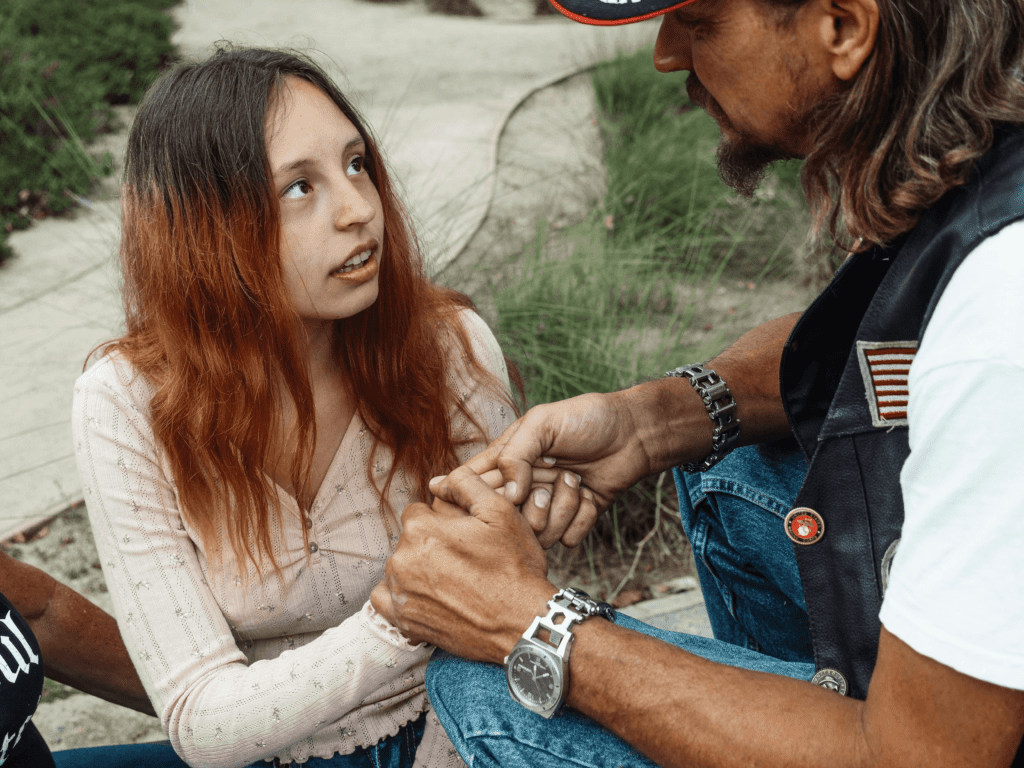Last updated on December 18th, 2024 at 05:14 am
- 1. Mind Games: The Narcissist’s Guide to Guilt-Tripping
- The Art of Guilt-Tripping
- The Psychology Behind Narcissistic Guilt-Tripping
- 2. The Narcissist’s Toolbox: Guilt-Tripping Techniques Exposed
- The Victim Card: How Narcissists Play It
- Emotional Blackmail: The Ultimate Guilt Trip
- Gaslighting and Guilt-Tripping: A Toxic Combination
- 3. Guilt-Tripping and Emotional Manipulation: The Narcissist’s Playbook
- The Anatomy of a Guilt Trip
- Love Bombing to Guilt-Tripping: The Narcissist’s Cycle
- Guilt-Tripping in Different Relationships
- 4. The Science of Guilt: How Narcissists Exploit Human Psychology
- The Evolutionary Purpose of Guilt
- Neurochemistry of Guilt: What Happens in the Brain
- Psychological Theories of Guilt
- 5. Guilt-Tripping in Popular Culture: Recognizing Narcissistic Tactics
- Guilt-Tripping in Literature: Classic Examples
- Hollywood’s Portrayal of Narcissistic Guilt-Tripping
- Television Series and the Narcissistic Arc
- 6. The Hidden Cost of Guilt: Long-Term Effects of Narcissistic Manipulation
- Psychological Impact of Chronic Guilt-Tripping
- Physical Health Consequences of Emotional Abuse
- Social and Relational Fallout
- 7. Guilt-Tripping vs. Healthy Accountability: Spotting the Difference
- Characteristics of Healthy Accountability
- Red Flags of Narcissistic Guilt-Tripping
- The Role of Intention in Guilt Communication
- 8. Guilt-Tripping in the Digital Age: Narcissism and Social Media
- The Narcissist’s Playground: Social Media Platforms
- Digital Guilt-Tripping Tactics
- The Impact of Constant Connectivity
- 9. Guilt-Tripping and Gender: Exploring Societal Expectations
- Traditional Gender Roles and Guilt
- Narcissistic Manipulation of Gender Norms
- Media Representation and Gender Guilt
- 10. The Workplace Narcissist: Guilt-Tripping in Professional Settings
- Identifying Narcissistic Behaviors in the Workplace
- Professional Guilt-Tripping Tactics
- The Cost of Workplace Narcissism
- 11. The Narcissist’s Family: Generational Patterns of Guilt-Tripping
- The Narcissistic Parent’s Guilt-Tripping Toolkit
- Sibling Dynamics in a Guilt-Driven Household
- Grandparents as Guilt-Tripping Enablers or Saviors
- 12. The Guilt-Tripper’s Playbook: Decoding Narcissistic Manipulation Tactics
- The “You Owe Me” Maneuver
- The Comparison Game
- Guilt by Association
- 13. Guilt-Tripping in Romantic Relationships: The Narcissist’s Love Language
- Love Bombing to Guilt-Tripping: The Narcissistic Cycle
- Sexual Guilt-Tripping and Manipulation
- Financial Guilt in Narcissistic Partnerships
- 14. The Language of Guilt: Phrases Narcissists Use to Manipulate
- “After All I’ve Done for You…”
- “If You Really Loved Me, You Would…”
- “You’re So Selfish/Ungrateful”
- 15. Guilt-Tripping and Cultural Expectations: A Narcissist’s Goldmine
- Family Honor and Collective Guilt
- Religious Guilt and Narcissistic Manipulation
- Cultural Achievement Pressure
- Understanding the Narcissist’s Emotional Dominance
- Recognizing Manipulative Patterns
- Establishing Boundaries
- The Role of Trauma Bonding in Narcissistic Relationships
- Understanding Attachment Trauma
- Steps to Break Free
- Guilt as a Weapon: The Narcissist’s Ultimate Tool
- Tactics of Emotional Manipulation
- Overcoming Guilt-Tripping
- Financial Abuse as a Form of Manipulation
- Identifying Financial Control
- Steps to Rebuild Independence
- The Psychology of Coercive Control in Intimate Relationships
- Mechanisms of Coercion
- Resisting Manipulation
- The Impact of Narcissistic Rage on Emotional Well-Being
- Emotional Toll of Rage
- Coping Mechanisms
- Recognizing and Resisting Toxic Love Dynamics
- Identifying Toxic Patterns
- Steps to Foster Healthy Connections
- Social Media and the New Frontier of Emotional Manipulation
- Online Manipulation Tactics
- Combating Digital Manipulation
- The Hidden Cost of Guilt-Tripping: Emotional and Physical Consequences
- Psychological Impacts
- Physical Health Effects
- Narcissistic Personality Disorder Traits and Their Impact
- Core Traits
- Addressing Challenges
- Frequently Asked Questions
- What Are Common Narcissistic Guilt-Tripping Tactics in Relationships?
- How Does Silent Treatment Function as a Manipulative Tool for Control?
- How Can Narcissists Use Smear Campaigns to Exert Power?
- Why Do Narcissists Use Guilt to Maintain a Sense of Control?
- What Are Signs of Narcissistic Guilt-Tripping in Family Dynamics?
- How Can One Overcome Guilt-Tripping in Narcissistic Relationships?
- What Role Does Emotional Blackmail Play in Narcissistic Mind Games?
- How Do Covert Narcissists Use Guilt in Subtle Manipulation?
- Why Are Firm Boundaries Critical in Dealing with Narcissistic Guilt-Tripping?
- How Do Narcissists Use Guilt to Manipulate in the Workplace?
- How Do Narcissists Exploit Emotional Turbulence to Control Others?
- What Are Examples of Guilt-Tripping in Parent-Child Relationships?
- How Does Gaslighting Amplify Guilt-Tripping?
- How Can Trustworthy Friends Help Counteract Guilt Manipulation?
- Why Do Narcissists Use Guilt to Induce Self-Doubt?
- How Does Fear Induction Support Narcissistic Guilt-Tripping?
- How Can Healthy Communication Mitigate Guilt-Tripping?
- What Is the Psychological Impact of Guilt-Tripping?
- How Can Recognizing Manipulative Patterns Empower Victims?
- How Does Narcissistic Manipulation Affect Adult Relationships?
Have you ever felt an inexplicable weight on your chest, a gnawing sense of responsibility that seems to consume your every thought? Welcome to the dark world of narcissistic guilt-tripping, where emotions become weapons and relationships transform into battlefields. In this eye-opening exposé, we’ll peel back the layers of manipulation that narcissists use to control their victims, leaving you both shocked and empowered.
Prepare to dive deep into the narcissist’s playbook as we uncover the insidious tactics they employ to twist your reality and exploit your conscience. From the subtle art of emotional blackmail to the blatant use of shame, we’ll guide you through a labyrinth of mind games that will have you questioning everything you thought you knew about guilt.
But this isn’t just another clinical analysis – it’s a journey into the heart of human psychology, where love and fear intertwine in a toxic dance. You’ll discover how pop culture mirrors these manipulative tactics, how gender expectations amplify guilt, and how social media has become the new frontier for emotional warfare.
Brace yourself for a rollercoaster of revelations as we explore:
- The chilling “You Owe Me” maneuver that leaves victims perpetually indebted
- The devastating impact of guilt-tripping on your mental and physical health
- How narcissists exploit cultural and religious beliefs to maximize guilt
- The shocking ways guilt-tripping manifests in romantic relationships
Whether you’re a survivor of narcissistic abuse, a concerned friend, or simply curious about the darker side of human nature, this blog post will captivate, inform, and ultimately empower you. Get ready to unmask the guilt-trippers and reclaim your emotional freedom. The truth awaits – are you prepared to face it?
1. Mind Games: The Narcissist’s Guide to Guilt-Tripping
The Art of Guilt-Tripping
Guilt-tripping is a manipulative tactic narcissists use to control you. It involves making someone feel guilty about their actions, thoughts, or feelings to influence their behavior. Narcissists are particularly adept at this art, using it as a powerful weapon in their arsenal of manipulation techniques.
The process typically involves:
- Identifying vulnerabilities: Narcissists are skilled at recognizing others’ insecurities and emotional weak points.
- Creating scenarios: They manufacture situations or twist existing ones to make others feel responsible for their happiness or well-being.
- Emotional leverage: Using loaded language and emotional appeals to intensify feelings of guilt.
- Persistence: Repeatedly bringing up past “transgressions” to maintain control.
Narcissists employ guilt-tripping in various contexts, from personal relationships to professional settings. They might say things like, “After all I’ve done for you…” or “If you really cared about me, you would…” to evoke guilt and manipulate others into compliance.


The Psychology Behind Narcissistic Guilt-Tripping
The psychological mechanisms driving narcissistic guilt-tripping are complex and deeply rooted in the narcissist’s own insecurities and need for control. Narcissists weaponize guilt to control your every move, exploiting fundamental human emotions to their advantage.
Key psychological factors include:
- Fear of abandonment: Narcissists often have a deep-seated fear of being left or rejected, driving them to use guilt as a means of ensuring others stay close.
- Need for control: By making others feel guilty, narcissists gain a sense of power and control over their environment and relationships.
- Lack of empathy: Unable to truly understand or care about others’ feelings, narcissists use guilt as a tool without regard for the emotional damage it causes.
- Projection: Often, the guilt narcissists try to induce in others is a reflection of their own unacknowledged feelings of inadequacy or shame.
2. The Narcissist’s Toolbox: Guilt-Tripping Techniques Exposed
Narcissists employ a variety of techniques to induce guilt in their targets. By understanding these methods, individuals can better protect themselves from manipulation.
The Victim Card: How Narcissists Play It
The victim card is a favorite tool in the narcissist’s arsenal. By portraying themselves as the wronged party, they aim to elicit sympathy and guilt from others. This technique involves:
- Exaggerating or fabricating hardships: Narcissists may embellish or invent difficulties to garner sympathy.
- Blame-shifting: They deflect responsibility for their actions onto others, making their targets feel guilty for perceived slights.
- Emotional manipulation: Using dramatic displays of emotion to make others feel responsible for their well-being.
For example, a narcissistic parent might say, “I sacrificed everything for you, and this is how you repay me?” when their adult child sets a boundary. This statement is designed to make the child feel guilty for asserting their independence.


Emotional Blackmail: The Ultimate Guilt Trip
Emotional blackmail is a powerful form of manipulation narcissists use to control others through fear, obligation, and guilt. This technique involves:
- Threats: Explicit or implicit threats of emotional withdrawal, anger, or other negative consequences.
- Pressure: Constant demands or expectations that create a sense of obligation.
- Repetition: Consistently using the same tactics to wear down the target’s resistance.
An example of emotional blackmail might be a narcissistic partner saying, “If you really loved me, you wouldn’t spend time with your friends.” This statement creates guilt and obligation, manipulating the target into isolating themselves from their support network.
Gaslighting and Guilt-Tripping: A Toxic Combination
Gaslighting is a particularly insidious form of psychological manipulation where the narcissist makes the target question their own perceptions and memories. When combined with guilt-tripping, it becomes an even more potent tool for control.
Gaslighting is one of the narcissist’s favorite manipulation tactics. The process typically involves:
- Denying reality: The narcissist contradicts the target’s memories or perceptions.
- Trivializing feelings: Dismissing the target’s emotional reactions as overreactions or “too sensitive.”
- Shifting blame: Making the target feel guilty for “misunderstanding” or “overreacting.”
For instance, a narcissist might say, “You’re imagining things. I never said that. You’re always twisting my words to make me look bad.” This statement not only denies the target’s reality but also induces guilt for “falsely” accusing the narcissist.


3. Guilt-Tripping and Emotional Manipulation: The Narcissist’s Playbook
Understanding the intricacies of guilt-tripping and emotional manipulation is crucial in identifying and countering these tactics.
The Anatomy of a Guilt Trip
A guilt trip typically follows a specific pattern:
- Trigger: An event or situation that the narcissist can exploit.
- Accusation: The narcissist assigns blame or responsibility to the target.
- Emotional appeal: Using loaded language or emotional displays to intensify guilt.
- Demand: The narcissist states their expectations or desires.
- Consequence: Implicit or explicit threats of negative outcomes if demands aren’t met.
For example:
- Trigger: You decline an invitation to a family event.
- Accusation: “You never make time for family.”
- Emotional appeal: “Your grandmother will be heartbroken.”
- Demand: “You need to rearrange your schedule and come.”
- Consequence: “If you don’t, don’t expect us to be there for you in the future.”
Love Bombing to Guilt-Tripping: The Narcissist’s Cycle
The narcissist’s emotional manipulation often follows a cyclical pattern, moving from intense affection (love bombing) to guilt-tripping and back again. This cycle keeps the target off-balance and emotionally dependent.
- Love bombing: Showering the target with affection, attention, and gifts.
- Devaluation: Gradually withdrawing affection and introducing criticism.
- Guilt-tripping: Using the previous affection as leverage to induce guilt.
- Reconciliation: Returning to love bombing to reinforce the cycle.
This cycle creates an emotional rollercoaster, making it difficult for the target to maintain a clear perspective on the relationship.
Guilt-Tripping in Different Relationships
Narcissistic guilt-tripping manifests differently across various relationship types:
- Romantic relationships: Narcissists use guilt to control partners, often leveraging emotional or financial dependence.
- Parent-child relationships: Narcissistic parents may use guilt to maintain control over adult children, invoking “family duty” or past sacrifices.
- Friendships: Narcissistic friends might guilt-trip others into prioritizing their needs, often at the expense of other relationships.
- Workplace: In professional settings, narcissists may use guilt to manipulate colleagues or subordinates into taking on extra work or covering for their mistakes.
4. The Science of Guilt: How Narcissists Exploit Human Psychology
To fully comprehend the power of narcissistic guilt-tripping, it’s essential to explore the scientific underpinnings of guilt and how narcissists exploit these natural human tendencies.
The Evolutionary Purpose of Guilt
Guilt is not merely a negative emotion; it serves important evolutionary and social functions:
- Social cohesion: Guilt helps maintain group harmony by motivating individuals to repair relationships and adhere to social norms.
- Moral compass: It acts as an internal regulator, guiding behavior towards ethical and prosocial actions.
- Adaptive behavior: Guilt can lead to positive behavioral changes, promoting learning from mistakes.


Neurochemistry of Guilt: What Happens in the Brain
The experience of guilt involves complex neurological processes:
- Prefrontal cortex: This region, associated with decision-making and moral reasoning, is highly active during guilt experiences.
- Amygdala: The brain’s emotional center plays a crucial role in processing guilt-related stimuli.
- Neurotransmitters: Guilt is associated with decreased levels of serotonin and increased levels of cortisol, the stress hormone.
Psychological Theories of Guilt
Several psychological theories provide insights into the nature of guilt and how narcissists exploit it:
- Cognitive dissonance theory: Guilt arises when actions conflict with beliefs or values. Narcissists create situations that heighten this dissonance.
- Attachment theory: Early relationships shape guilt responses. Narcissists often exploit attachment-related guilt, especially in close relationships.
- Social identity theory: Guilt can be influenced by group membership. Narcissists may use collective guilt to manipulate individuals within social groups.
5. Guilt-Tripping in Popular Culture: Recognizing Narcissistic Tactics
Popular culture often reflects and influences societal understanding of complex psychological phenomena, including narcissistic guilt-tripping. Examining these portrayals can provide valuable insights into recognizing and understanding these manipulative tactics.
Guilt-Tripping in Literature: Classic Examples
Literature has long explored the intricacies of human relationships, including the manipulative use of guilt. Classic examples include:
- “Great Expectations” by Charles Dickens: Miss Havisham’s manipulation of Estella and Pip through guilt and obligation.
- “The Great Gatsby” by F. Scott Fitzgerald: Tom Buchanan’s use of guilt to control his wife Daisy.
- “Wuthering Heights” by Emily Brontë: Heathcliff’s emotional manipulation and guilt-tripping of those around him.
These literary works provide a roadmap to emotional freedom by illustrating the subtle and overt ways narcissists employ guilt as a tool for control.
Hollywood’s Portrayal of Narcissistic Guilt-Tripping
Hollywood films have often depicted narcissistic characters and their manipulative tactics:
- “The Devil Wears Prada”: Miranda Priestly’s use of guilt to maintain control over her employees.
- “Black Swan”: Nina’s mother employing guilt to influence her daughter’s career and personal life.
- “There Will Be Blood”: Daniel Plainview’s manipulative use of guilt in his business and personal relationships.
These cinematic portrayals help audiences recognize and resist manipulation by showcasing the subtle and often insidious nature of narcissistic guilt-tripping.


Television Series and the Narcissistic Arc
Television series, with their extended narratives, offer in-depth explorations of narcissistic characters and their evolving manipulation tactics:
- “The Sopranos”: Tony Soprano’s use of guilt to control his family and criminal organization.
- “Mad Men”: Don Draper’s manipulation of colleagues and romantic partners through guilt and charm.
- “Succession”: Logan Roy’s masterful use of guilt to pit his children against each other and maintain control of his empire.
These shows provide a longitudinal view of how narcissists use guilt-tripping to manipulate and control, offering viewers a chance to observe the long-term effects of such behavior.
6. The Hidden Cost of Guilt: Long-Term Effects of Narcissistic Manipulation
The impact of narcissistic guilt-tripping extends far beyond immediate emotional discomfort, often resulting in profound and lasting consequences for the victim.
Psychological Impact of Chronic Guilt-Tripping
Continuous exposure to narcissistic guilt-tripping can lead to severe psychological effects:
- Lowered self-esteem: Constant criticism and blame can erode one’s sense of self-worth.
- Anxiety and depression: The persistent stress of navigating guilt-laden interactions can contribute to mood disorders.
- Cognitive distortions: Victims may develop skewed perceptions of responsibility and blame.
- Emotional exhaustion: The energy required to manage guilt can lead to burnout and emotional fatigue.
These psychological impacts create emotional prisons that can be difficult to escape without intervention.
Physical Health Consequences of Emotional Abuse
The stress of chronic guilt-tripping can manifest in physical health issues:
- Cardiovascular problems: Prolonged stress can increase the risk of heart disease and hypertension.
- Immune system suppression: Chronic stress can weaken the body’s ability to fight off infections.
- Sleep disturbances: Anxiety and rumination over guilt can lead to insomnia or poor sleep quality.
- Gastrointestinal issues: Stress-induced gut problems like IBS may develop or worsen.
Social and Relational Fallout
The effects of narcissistic guilt-tripping often spill over into the victim’s broader social life:
- Isolation: Victims may withdraw from other relationships to avoid further guilt or manipulation.
- Trust issues: Difficulty trusting others can impair the formation of new, healthy relationships.
- Codependency: Prolonged exposure to guilt-tripping can foster unhealthy relational patterns.
- Social anxiety: Fear of being manipulated or guilted can lead to avoidance of social situations.
These social consequences can create a cycle of isolation and vulnerability, trapping victims in toxic relationships.


7. Guilt-Tripping vs. Healthy Accountability: Spotting the Difference
Understanding the distinction between manipulative guilt-tripping and healthy accountability is crucial for maintaining balanced relationships.
Characteristics of Healthy Accountability
Healthy accountability in relationships involves:
- Mutual respect: Both parties acknowledge each other’s autonomy and worth.
- Clear communication: Expectations and concerns are expressed openly and directly.
- Focus on solutions: The emphasis is on resolving issues, not assigning blame.
- Acceptance of responsibility: Each person takes ownership of their actions and feelings.
Red Flags of Narcissistic Guilt-Tripping
Key indicators of narcissistic guilt-tripping include:
- Exaggeration: Minor issues are blown out of proportion.
- Selective memory: Only negative events are remembered and brought up repeatedly.
- Emotional manipulation: Intense displays of emotion are used to elicit guilt.
- Conditional love/approval: Affection is withheld or granted based on compliance.
Recognizing these red flags can help individuals identify when they’re being manipulated through guilt.
The Role of Intention in Guilt Communication
The intention behind guilt-inducing statements is a crucial differentiator:
- Healthy accountability: The intent is to address and resolve issues for mutual benefit.
- Narcissistic guilt-tripping: The goal is to control and manipulate for personal gain.
Understanding the underlying intentions can help in distinguishing between genuine concerns and manipulative tactics.
8. Guilt-Tripping in the Digital Age: Narcissism and Social Media
The rise of social media has provided new avenues for narcissistic manipulation, amplifying the reach and impact of guilt-tripping tactics.
The Narcissist’s Playground: Social Media Platforms
Social media platforms offer narcissists unique opportunities for manipulation:
- Public shaming: Using posts to publicly guilt or shame others.
- Comparison traps: Curated posts that induce envy or inadequacy in others.
- Attention-seeking behaviors: Dramatic posts designed to elicit sympathy and guilt.
These platforms can become a narcissist’s favorite weapon, enabling them to reach a wider audience with their manipulative tactics.
Digital Guilt-Tripping Tactics
Common digital guilt-tripping strategies include:
- Passive-aggressive posts: Vague statuses or memes that hint at disappointment or hurt.
- Guilt-inducing comments: Public responses designed to make others feel bad.
- Selective tagging: Including or excluding people from posts to create feelings of guilt or obligation.
The Impact of Constant Connectivity
The always-on nature of digital communication exacerbates guilt-tripping:
- Immediate responses: Expectation of instant replies can be used to induce guilt.
- Digital footprints: Past interactions can be easily referenced to reinforce guilt.
- Blurred boundaries: The line between personal and public life becomes less distinct.
This constant connectivity can create an emotional rollercoaster, making it challenging to escape manipulative tactics.
9. Guilt-Tripping and Gender: Exploring Societal Expectations
Gender roles and societal expectations often intersect with guilt-tripping tactics, creating unique challenges in recognizing and addressing narcissistic manipulation.
Traditional Gender Roles and Guilt
Societal norms can exacerbate guilt-tripping:
- Female caregiving expectations: Women may face increased guilt around family and caregiving responsibilities.
- Male emotional stoicism: Men might experience guilt for expressing vulnerability or seeking emotional support.
- Work-life balance guilt: Both genders may face guilt related to balancing career and family obligations.
These traditional expectations can be exploited by narcissists to intensify feelings of guilt and inadequacy.
Narcissistic Manipulation of Gender Norms
Narcissists often leverage gender stereotypes in their manipulation:
- Weaponizing masculinity: Using shame or guilt to enforce traditional male behaviors.
- Exploiting femininity: Manipulating expectations of nurturing or self-sacrifice in women.
- Gender role reversal guilt: Inducing guilt for not conforming to traditional gender roles.
Understanding these tactics is crucial in unmasking narcissistic manipulation.
Media Representation and Gender Guilt
Media portrayals often reinforce gendered guilt:
- Idealized parenting: Unrealistic depictions of motherhood or fatherhood that induce guilt.
- Body image guilt: Representations that create shame or guilt about physical appearance.
- Career vs. family narratives: Stories that pit professional success against family responsibilities.
These media representations can amplify societal expectations, making individuals more vulnerable to narcissistic guilt-tripping.
10. The Workplace Narcissist: Guilt-Tripping in Professional Settings
Narcissistic manipulation through guilt-tripping is not confined to personal relationships; it can also manifest in professional environments, creating toxic work cultures.
Identifying Narcissistic Behaviors in the Workplace
Common workplace narcissistic behaviors include:
- Credit-stealing: Taking credit for others’ work while blaming them for failures.
- Excessive competition: Creating an environment of constant comparison and one-upmanship.
- Favoritism: Using preferential treatment to manipulate and control subordinates.
Recognizing these behaviors is crucial in maintaining sanity in toxic work environments.
Professional Guilt-Tripping Tactics
Workplace narcissists employ specific guilt-tripping strategies:
- Unreasonable deadlines: Setting impossible timelines and guilting employees for not meeting them.
- After-hours communication: Expecting responses outside of work hours and inducing guilt for setting boundaries.
- Loyalty tests: Creating situations that force employees to choose between personal life and work commitments.
These tactics can create a guilt epidemic in professional settings.


The Cost of Workplace Narcissism
The impact of narcissistic guilt-tripping in the workplace is significant:
- Decreased productivity: Constant stress and guilt can impair job performance.
- High turnover: Employees may leave to escape toxic work environments.
- Decreased innovation: Fear of criticism or guilt can stifle creativity and risk-taking.
- Legal and financial risks: Manipulative practices may lead to lawsuits or regulatory issues.
11. The Narcissist’s Family: Generational Patterns of Guilt-Tripping
Narcissistic behavior often runs in families, creating complex generational patterns of guilt-tripping and emotional manipulation.
The Narcissistic Parent’s Guilt-Tripping Toolkit
Narcissistic parents employ various guilt-tripping tactics to maintain control over their children:
- Sacrifice narratives: Constantly reminding children of parental sacrifices
- Comparison tactics: Pitting siblings against each other or comparing children to “ideal” peers
- Emotional blackmail: Threatening withdrawal of love or support to ensure compliance
These tactics can create an emotional hostage situation, where children feel perpetually indebted to their parents.
Sibling Dynamics in a Guilt-Driven Household
In families with narcissistic parents, sibling relationships often become complicated:
- Golden child vs. scapegoat: Parents may designate one child as perfect and another as the family problem
- Competitive guilt: Siblings may compete to avoid guilt or gain parental approval
- Triangulation: Parents might use one child to guilt or manipulate another
These dynamics can lead to long-lasting rifts and emotional prisons within the family structure.
Grandparents as Guilt-Tripping Enablers or Saviors
Grandparents can play various roles in narcissistic family dynamics:
- Enablers: Reinforcing the narcissistic parent’s guilt-tripping behaviors
- Saviors: Providing a guilt-free safe haven for grandchildren
- Competing manipulators: Using guilt to compete with parents for the grandchildren’s affection
Understanding these roles is crucial in navigating the narcissist’s emotional minefield.
12. The Guilt-Tripper’s Playbook: Decoding Narcissistic Manipulation Tactics
Narcissists employ a variety of guilt-tripping tactics to manipulate and control others.
The “You Owe Me” Maneuver
This tactic involves:
- Keeping score: Meticulously tracking favors or gifts given
- Conditional generosity: Offering help or gifts with strings attached
- Exaggerating contributions: Inflating the value or significance of their actions
The “You Owe Me” maneuver creates a sense of perpetual indebtedness, making it difficult for victims to assert boundaries or refuse requests.
The Comparison Game
Narcissists often use comparisons to induce guilt:
- Idealized others: Comparing the victim unfavorably to “perfect” individuals
- Past vs. present: Contrasting current behavior with idealized past actions
- Hypothetical scenarios: Using “what if” situations to highlight perceived shortcomings
This tactic can derail self-esteem and create a constant sense of inadequacy.
Guilt by Association
This manipulation technique involves:
- Group blame: Holding an individual responsible for the actions of a group
- Inherited guilt: Blaming someone for the actions of family members or ancestors
- Cultural shame: Using cultural or societal expectations to induce guilt
Guilt by association can create a web of manipulation that’s difficult to escape.
13. Guilt-Tripping in Romantic Relationships: The Narcissist’s Love Language
Romantic relationships with narcissists often involve intense cycles of affection and guilt-tripping.
Love Bombing to Guilt-Tripping: The Narcissistic Cycle
This cycle typically involves:
- Love bombing: Overwhelming the partner with affection and attention
- Devaluation: Gradually withdrawing affection and introducing criticism
- Guilt-tripping: Using the previous affection as leverage to induce guilt
- Reconciliation: Returning to love bombing to reinforce the cycle
This pattern creates an emotional rollercoaster, making it challenging for partners to maintain emotional stability.
Sexual Guilt-Tripping and Manipulation
Narcissists may use sex as a tool for guilt and manipulation:
- Withholding intimacy: Using sex as a reward or punishment
- Comparing sexual performance: Inducing guilt about sexual inadequacy
- Coercion through guilt: Using guilt to pressure partners into unwanted sexual activities
These tactics can create deep-seated insecurities and emotional turmoil in romantic relationships.


Financial Guilt in Narcissistic Partnerships
Money often becomes a weapon in narcissistic relationships:
- Financial dependence: Creating situations where the partner feels guilty for spending or earning
- Extravagant gifts: Using expensive presents to create a sense of obligation
- Financial secrets: Hiding or manipulating financial information to maintain control
These financial tactics can leave partners feeling trapped and indebted.
14. The Language of Guilt: Phrases Narcissists Use to Manipulate
Narcissists often rely on specific phrases to trigger guilt in their victims.
“After All I’ve Done for You…”
This phrase is designed to:
- Invoke a sense of indebtedness: Reminding the victim of past favors or sacrifices
- Minimize the victim’s contributions: Implying that the narcissist’s actions outweigh any reciprocation
- Create ongoing obligation: Suggesting that the victim can never truly repay the narcissist
This guilt whispering can create a persistent feeling of inadequacy and obligation.
“If You Really Loved Me, You Would…”
This manipulative phrase aims to:
- Question the victim’s affection: Implying that love is proven through specific actions
- Create impossible standards: Setting unrealistic expectations for proving love
- Manipulate through emotion: Using the concept of love to control behavior
This tactic twists the victim’s reality, making them question their own feelings and motivations.


“You’re So Selfish/Ungrateful”
This accusation serves to:
- Induce shame: Making the victim feel guilty for having their own needs or boundaries
- Shift focus: Deflecting attention from the narcissist’s unreasonable demands
- Reinforce control: Discouraging the victim from asserting themselves in the future
These labels can create emotional prisons, trapping victims in cycles of guilt and self-doubt.
15. Guilt-Tripping and Cultural Expectations: A Narcissist’s Goldmine
Cultural norms and expectations provide fertile ground for narcissistic guilt-tripping.
Family Honor and Collective Guilt
In cultures that emphasize family honor:
- Shame-based control: Using family reputation to manipulate individual behavior
- Collective punishment: Blaming individuals for “disgracing” the entire family
- Generational obligation: Invoking ancestral sacrifices to induce guilt
These cultural dynamics can intensify the power of guilt in narcissistic manipulation.
Religious Guilt and Narcissistic Manipulation
Religious beliefs can be exploited by narcissists:
- Divine judgment: Using religious concepts of sin or karma to induce guilt
- Spiritual obligation: Manipulating religious duties or expectations
- Moral superiority: Positioning themselves as morally superior to induce shame
Religious guilt can create particularly deep-seated emotional turmoil in victims of narcissistic abuse.
Cultural Achievement Pressure
Societal expectations of success can be weaponized:
- Status comparisons: Using cultural benchmarks of success to induce feelings of inadequacy
- Legacy pressure: Guilting individuals about upholding family or cultural legacies
- “Model minority” expectations: Exploiting cultural stereotypes to create unrealistic standards
These pressures can create a guilt-driven environment where individuals constantly feel they’re falling short of expectations.
Understanding the Narcissist’s Emotional Dominance
Recognizing Manipulative Patterns
Narcissistic individuals rely on a range of manipulative tactics to assert dominance in relationships. Guilt-tripping is a common tool for manipulation, leaving their partners questioning their self-worth.
Emotional dependency is cultivated through cycles of excessive affection and abrupt withdrawal. This cycle reinforces the partner’s need for validation, creating a false sense of security.
Establishing Boundaries
By creating an unhealthy relationship dynamic, narcissists trap their partners in constant emotional turmoil. Recognizing these patterns is crucial to breaking free.
Establishing firm boundaries is an essential step in regaining personal power. This process often involves self-awareness and seeking support networks.
The Role of Trauma Bonding in Narcissistic Relationships
Understanding Attachment Trauma
Trauma bonding is a feature of relationships with narcissists, driven by love-bombing phases and emotional abuse. Victims become tethered to their abusers through intermittent reinforcement.
This cycle fosters deep attachment trauma, making it hard to break free. Understanding these dynamics is key to recognizing toxic behaviors.
Steps to Break Free
Victims must recognize the psychological manipulation at play. Seeking professional support and building resilience are proactive steps.
Untangling from these cycles often involves addressing the underlying emotional triggers. Support groups can also provide valuable insight into recovery.
Guilt as a Weapon: The Narcissist’s Ultimate Tool
Tactics of Emotional Manipulation
Guilt becomes a narcissist’s control tactic to dominate their partners. Common phrases like “After all I’ve done for you” manipulate emotions.
These guilt-inducing tactics create a skewed sense of responsibility in victims. Recognizing this manipulation is the first step toward freedom.
Overcoming Guilt-Tripping
Victims can combat these tactics by identifying the signs of guilt-tripping. Emotional awareness helps in neutralizing manipulative behavior.
Building self-esteem and practicing self-affirmation are critical steps. Therapy can further aid in understanding and overcoming guilt-tripping.
Financial Abuse as a Form of Manipulation
Identifying Financial Control
Financial abuse involves creating dependency by controlling access to money. Narcissists use financial resources to exert power over their victims.
Guilt-tripping partners into spending or saving excessively is a common strategy. This leaves victims feeling trapped and powerless.
Steps to Rebuild Independence
Recognizing financial abuse is crucial in breaking its hold. Rebuilding independence involves gaining financial literacy and support.
Victims should seek professional advice and create a financial exit plan. Empowerment through economic stability is essential.
The Psychology of Coercive Control in Intimate Relationships
Mechanisms of Coercion
Coercive control in relationships often includes verbal abuse and emotional blackmail. Narcissists use manipulative love tactics to erode their partner’s autonomy.
Exaggerated entitlement and constant admiration demands reinforce this control. Recognizing these behaviors is the first step to liberation.
Resisting Manipulation
Healthy partners must establish firm boundaries to counter coercive tactics. Understanding emotional manipulation helps victims reclaim their autonomy.
Seeking professional help can guide individuals through challenging dynamics. Rebuilding a support network is also vital.
The Impact of Narcissistic Rage on Emotional Well-Being
Emotional Toll of Rage
Narcissistic rage stems from challenges to their inflated self-image. These outbursts often result in verbal abuse and manipulative behaviors.
Victims experience emotional exhaustion and further dependency. Understanding these effects is crucial to mitigating the damage.
Coping Mechanisms
Learning to detach emotionally helps reduce the impact of narcissistic rage. Building resilience involves therapy and self-care.
External support systems provide relief and perspective. Education about narcissistic behaviors empowers victims to take control.
Recognizing and Resisting Toxic Love Dynamics
Identifying Toxic Patterns
Toxic love replaces genuine affection with manipulation and criticism. Narcissists use excessive attention to create instability in their partners.
This imbalance fosters co-dependency and perpetuates abuse cycles. Recognizing these patterns is essential for breaking free.
Steps to Foster Healthy Connections
Identifying red flags like controlling behaviors helps victims recognize unhealthy relationships. Fostering healthier connections involves self-awareness and external support.
Seeking therapy can guide individuals toward stable relationships. Building self-esteem is a foundational step in recovery.
Social Media and the New Frontier of Emotional Manipulation
Online Manipulation Tactics
Social media amplifies narcissistic manipulation through curated personas. Passive-aggressive posts and selective sharing are common strategies.
Victims often face guilt trips designed to blur online and offline boundaries. Recognizing these tactics is key to mental health.
Combating Digital Manipulation
Limiting exposure to toxic digital dynamics helps protect emotional well-being. Setting boundaries online is as important as offline.
Engaging in positive online communities fosters a sense of belonging. Education about digital manipulation provides additional safeguards.
The Hidden Cost of Guilt-Tripping: Emotional and Physical Consequences
Psychological Impacts
Chronic guilt-tripping leads to anxiety, depression, and self-worth issues. Victims often carry long-term trauma from these manipulative tactics.
Addressing these impacts involves seeking professional support. Therapy offers tools to rebuild confidence and emotional resilience.
Physical Health Effects
Stress from abusive relationships manifests in sleep disturbances and cardiovascular problems. Breaking free from manipulation alleviates these issues.
Focusing on physical health through self-care is a vital recovery step. Regular exercise and mindfulness practices aid in healing.
Narcissistic Personality Disorder Traits and Their Impact
Core Traits
Narcissistic personality disorder traits include inflated self-importance and lack of empathy. These traits drive controlling behaviors in relationships.
Recognizing these traits helps individuals identify toxic dynamics. Early intervention prevents long-term emotional harm.
Addressing Challenges
Establishing healthy boundaries is critical in managing challenging relationships. Support groups and therapy offer strategies to navigate these dynamics.
Education about narcissistic behaviors empowers individuals to protect themselves. Building resilience fosters emotional independence.
From Embrace Inner Chaos to your inbox
Transform your Chaos into authentic personal growth – sign up for our free weekly newsletter! Stay informed on the latest research advancements covering:
Narcissistic Personality Disorder (NPD)
Frequently Asked Questions
What Are Common Narcissistic Guilt-Tripping Tactics in Relationships?
Narcissistic guilt-tripping in relationships often involves subtle and manipulative strategies designed to induce guilt and gain control over their partner. A narcissist may use exaggerated claims of sacrifice or victimhood, such as saying, “After all I’ve done for you, this is how you treat me?” to create a sense of obligation. Another tactic involves leveraging personal insecurities to undermine confidence, making the victim feel incapable or unworthy of their own choices.
Emotional manipulation often extends to triangulation, where the narcissist uses mutual friends or family members to validate their position and isolate the victim emotionally. Professionals from Psychology Today note that guilt-tripping can erode self-esteem over time, leading to a false sense of responsibility for the narcissist’s feelings. Recognizing these patterns is essential for preserving one’s emotional health and establishing firm boundaries to counteract manipulation.
How Does Silent Treatment Function as a Manipulative Tool for Control?
The silent treatment is a deliberate strategy used by narcissists to punish or manipulate individuals who challenge their exaggerated sense of control. By withdrawing communication and emotional connection, the narcissist fosters feelings of rejection, self-doubt, and desperation in their target. This method is particularly effective because it plays on the human need for connection, leaving victims grappling with intense feelings of inadequacy and confusion.
Mental health professionals from Healthline explain that the silent treatment serves as a psychological warfare strategy, reinforcing the narcissist’s dominance while ensuring the victim remains emotionally entangled. Breaking this cycle requires direct communication techniques and an unwavering commitment to maintaining personal boundaries. Seeking support from trustworthy friends or therapists can provide clarity and strengthen emotional resilience.
How Can Narcissists Use Smear Campaigns to Exert Power?
Smear campaigns are a common tactic in the narcissist’s arsenal, aimed at discrediting and isolating their target. These campaigns often involve spreading false information, exaggerating truths, or twisting narratives to paint the victim as unstable, untrustworthy, or immoral. The goal is to undermine the victim’s support system while bolstering the narcissist’s image as the “real” victim.
Experts from Verywell Mind emphasize that smear campaigns are particularly damaging because they erode trust and create emotional turbulence in the victim’s relationships. Combatting these attacks requires maintaining a detailed record of interactions and calmly refuting false claims with factual evidence. Surrounding oneself with a circle of supportive and trustworthy allies can also mitigate the emotional toll of this manipulative strategy.
Why Do Narcissists Use Guilt to Maintain a Sense of Control?
Narcissists employ guilt as a powerful tool to maintain dominance and reinforce their control over others. By instilling feelings of shame and responsibility, they ensure compliance and suppress resistance. This tactic often involves framing the narcissist as the “victim” of their target’s perceived bad behavior, leading to a cycle of emotional manipulation and self-doubt.
According to Harvard Health Publishing, guilt-tripping leverages the target’s empathy and emotional investment to achieve the narcissist’s goals. Breaking free from this cycle involves recognizing the manipulative nature of these interactions and developing healthier communication patterns. Establishing firm boundaries and seeking guidance from mental health professionals can help individuals reclaim their autonomy.
What Are Signs of Narcissistic Guilt-Tripping in Family Dynamics?
In family settings, narcissistic guilt-tripping often manifests through unrealistic expectations, guilt manipulation techniques, and emotional blackmail. A narcissist might blame their relatives for unmet needs or frame themselves as the long-suffering parent, demanding loyalty and compliance. This toxic behavior creates a false sense of obligation, making it difficult for family members to assert their personal boundaries.
Professionals from Mayo Clinic highlight that recognizing these signs is crucial for navigating relationships with narcissists. Establishing healthy boundaries and engaging in direct communication can mitigate the emotional distress caused by these manipulative tactics. Additionally, seeking support from external resources or counseling can provide valuable tools for fostering healthier relationships.
How Can One Overcome Guilt-Tripping in Narcissistic Relationships?
Overcoming guilt-tripping in narcissistic relationships requires a multi-faceted approach that includes recognizing manipulative patterns, setting clear personal expectations, and building emotional resilience. Narcissists often exploit deep feelings of guilt to maintain control, making it essential to identify and counter these strategies.
Insights from PsychCentral suggest that cultivating self-awareness and seeking guidance from mental health professionals are effective strategies for breaking free from these toxic dynamics. Developing healthier communication skills and leaning on trustworthy friends can also provide the emotional strength needed to resist guilt manipulation and rebuild self-esteem.
What Role Does Emotional Blackmail Play in Narcissistic Mind Games?
Emotional blackmail is a cornerstone of narcissistic manipulation tactics, involving threats, fear induction, and guilt to secure compliance. This form of psychological warfare preys on the target’s emotional vulnerabilities, creating a sense of powerlessness and dependency. For instance, a narcissist might threaten to withdraw love or support unless their demands are met, fostering an unhealthy relationship dynamic.
According to WebMD, emotional blackmail often escalates into cycles of guilt-tripping and confusion, leaving victims feeling trapped and emotionally drained. Understanding these tactics and seeking external support can empower individuals to navigate these challenges and prioritize their mental well-being. Establishing firm personal boundaries and engaging in healthy communication are essential steps in resisting emotional manipulation.
How Do Covert Narcissists Use Guilt in Subtle Manipulation?
Covert narcissists excel at subtle forms of guilt-tripping, often presenting themselves as selfless or misunderstood while subtly shifting blame onto their targets. This tactic creates a false sense of responsibility, compelling the victim to overcompensate for perceived wrongs. Covert narcissists may use passive-aggressive remarks or feigned helplessness to manipulate others.
As noted by National Institute of Mental Health, these behaviors are a deliberate strategy to maintain control and reinforce their dominance. Recognizing the signs of covert narcissism and reframing interactions through a lens of objectivity can help individuals protect their emotional health. Practicing assertiveness and seeking therapy can further strengthen resilience against these manipulative strategies.
Why Are Firm Boundaries Critical in Dealing with Narcissistic Guilt-Tripping?
Firm boundaries are essential in counteracting narcissistic guilt-tripping because they establish clear limits and protect emotional well-being. Narcissists often exploit blurred boundaries to assert control, using tactics like guilt and manipulation to bypass personal expectations. By asserting clear boundaries, individuals can reduce the impact of these toxic behaviors.
Research from Cleveland Clinic underscores the importance of consistent boundary enforcement and direct communication in navigating relationships with narcissists. Developing a strong sense of self and prioritizing one’s mental health are key components in resisting guilt-tripping and fostering healthier interactions.
How Do Narcissists Use Guilt to Manipulate in the Workplace?
In professional settings, narcissists use guilt as a deliberate strategy to undermine colleagues and maintain a sense of control. They may employ tactics like assigning blame for team failures or highlighting perceived inadequacies to shift responsibility onto others. These manipulative strategies often create a toxic work environment, impacting team morale and productivity.
Insights from Forbes reveal that recognizing these behaviors and documenting interactions are effective strategies for mitigating their impact. Engaging in healthy communication and seeking support from HR or management can help address these challenges and promote a healthier workplace dynamic.
How Do Narcissists Exploit Emotional Turbulence to Control Others?
Narcissists thrive on creating emotional turbulence, leveraging intense feelings to destabilize their targets. This tactic ensures that their victims remain distracted, confused, and emotionally dependent. By inducing dramatic highs and lows, narcissists keep their targets off balance and less likely to recognize manipulative behaviors.
Insights from BetterHelp suggest that this cycle often leads to emotional exhaustion, making it critical to identify and disrupt these patterns. Developing a strong support network and practicing self-care can help individuals regain clarity and resilience.
What Are Examples of Guilt-Tripping in Parent-Child Relationships?
In parent-child relationships, narcissists often use guilt-tripping to enforce control and maintain dominance. Phrases like “After everything I’ve done for you” or “You’re ungrateful” are common examples. These tactics aim to foster a false sense of obligation and dependence.
Professionals at Child Mind Institute highlight the importance of recognizing these patterns and fostering open communication to mitigate emotional manipulation. Encouraging independence and seeking family therapy can also help build healthier dynamics.
How Does Gaslighting Amplify Guilt-Tripping?
Gaslighting often works hand-in-hand with guilt-tripping to amplify emotional manipulation. By distorting reality and causing self-doubt, narcissists make their targets question their perceptions and decisions. This creates fertile ground for guilt-tripping, as victims feel more inclined to take responsibility for issues that are not their fault.
According to Psychology Today, recognizing gaslighting behaviors is a crucial step in breaking free from this manipulation. Validation from trusted friends or therapists can help rebuild confidence and counteract these tactics.
How Can Trustworthy Friends Help Counteract Guilt Manipulation?
Having a supportive network of trustworthy friends is a powerful tool for countering guilt manipulation. Friends can provide objective perspectives, helping victims recognize when they are being unfairly targeted. They also offer emotional support, which is essential for maintaining resilience.
Research from HelpGuide emphasizes the importance of leaning on this support system during challenging times. Openly sharing experiences and seeking advice can foster clarity and strengthen resolve against manipulative tactics.
Why Do Narcissists Use Guilt to Induce Self-Doubt?
Guilt is a deliberate strategy used by narcissists to induce self-doubt and maintain control. By framing their targets as selfish or inconsiderate, narcissists create an environment of second-guessing and compliance. This ensures their dominance while eroding their target’s confidence.
Insights from Harvard Business Review highlight that understanding these strategies is vital for preserving self-esteem and autonomy. Recognizing manipulative behaviors and reaffirming one’s worth can help break this toxic cycle.
How Does Fear Induction Support Narcissistic Guilt-Tripping?
Fear induction is another manipulative strategy that complements guilt-tripping. By creating a sense of impending doom or catastrophic consequences, narcissists force their targets to comply with their demands. This tactic often involves exaggerating risks or using veiled threats.
According to The Gottman Institute, addressing fear-based manipulation requires a calm and strategic approach. Setting firm boundaries and seeking external validation are essential for counteracting these toxic behaviors.
How Can Healthy Communication Mitigate Guilt-Tripping?
Healthy communication is an effective strategy for mitigating guilt-tripping, as it reduces ambiguity and reinforces personal boundaries. By clearly articulating needs and refusing to engage with manipulative tactics, individuals can weaken the narcissist’s control.
Experts from MindTools recommend practicing assertiveness and active listening to foster healthier interactions. Building these skills can empower individuals to navigate challenging dynamics and protect their emotional well-being.
What Is the Psychological Impact of Guilt-Tripping?
The psychological effects of guilt-tripping can be profound, leading to issues like anxiety, depression, and diminished self-worth. Victims often internalize the guilt, which fosters a cycle of self-blame and emotional turmoil. Over time, this can affect personal relationships and overall mental health.
Professionals at American Psychological Association underscore the importance of seeking therapy and support to address these impacts. Building self-awareness and practicing self-compassion are crucial for healing from such manipulative experiences.
How Can Recognizing Manipulative Patterns Empower Victims?
Recognizing manipulative patterns is the first step toward empowerment and recovery. Awareness helps victims identify toxic behaviors, allowing them to take proactive steps to protect themselves. This includes establishing boundaries, seeking support, and prioritizing personal growth.
According to National Domestic Violence Hotline, knowledge is a powerful tool in breaking free from abusive dynamics. Empowerment through education and self-advocacy can pave the way for healthier relationships and emotional resilience.
How Does Narcissistic Manipulation Affect Adult Relationships?
Narcissistic manipulation can severely impact adult relationships by fostering dependency, eroding trust, and perpetuating cycles of emotional abuse. Partners often feel trapped in a pattern of giving more while receiving less, leading to burnout and resentment.
Insights from Relate suggest that addressing these dynamics requires professional intervention and a commitment to change. Developing self-awareness and seeking couple’s counseling can help restore balance and foster healthier connections.




